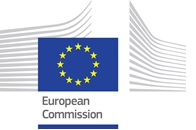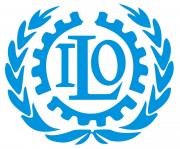Brussels, Belgium
Better Work for Immigrants: Tackling Joblessness and Stunted Progression in the European Union
Multimedia Tabs
9:30 — 9:45: Introduction: Georg Fischer, Director for Analysis, Evaluation, and External Relations, Directorate-General for Employment, Social Affairs, and Inclusion, European Commission
9:45 – 11:15: Session I: Bleak Picture or Steady Progress? Labour Market Outcomes of New Arrivals in Europe
- David Metcalf, Chair, Migration Advisory Committee, United Kingdom
- Marie-Hélène Amiel, Head of Statistics, Studies, and Documentation, General Directorate for Foreigners in France, Ministry of Interior
- Thomas Liebig, Senior Migration Specialist, Directorate for Employment, Labour, and Social Affairs, OECD
- Madeleine Sumption, Director of Research, MPI International Program
- Claire Courteille, Director, ILO-Brussels
11:30 – 13:00: Session II: Can Training Get Migrants into Middle-Skilled Jobs? Working More Effectively with Social Partners and Civil Society
- Meghan Benton, Policy Analyst, MPI
- Gesine Kessler-Mohr, Hamburg Chamber of Crafts and Manager of IQ Network Hamburg
- Zuzanna Muskat-Gorska, Policy Advisor, International Trade Union Confederation
- Christiane Kuptsch, Senior Specialist, ILO
- Johan Nylander, Operations Coordinator, Department of Integration and Introduction, The Swedish Public Employment Service
13:00 – 14:00: LUNCH
14:00 – 15:30: Session III: Where Next? The Future of Integration Policy in Europe
- Laura Corrado, Acting Head of Immigration and Integration Unit, Directorate-General for Home Affairs, European Commission
- Katerina Stepankova, Head of Foreign Employment Unit, Ministry of Labour and Social Affairs, Czech Republic
- Tommi Teljosuo, Senior Advisor, Deputy Head of Division for Integration and Urban Development, Ministry of Employment, Sweden
- Elizabeth Collett, Director, MPI Europe
Newly arrived immigrants in Europe are at greater risk of unemployment and over-represented in the lowest skilled jobs. But is low-skilled work an inevitable trap or can governments help lift migrants into more skilled jobs? This meeting will discuss the dynamics by which migrants get stuck in low-skilled work, and the role of training and employment services in helping them progress in their occupations. This event concludes an MPI-ILO research project, funded by the European Commission, that examines employment prospects of foreign-born workers and the effectiveness of integration and workforce development policies in helping foreign-born workers overcome barriers and move up into middle-skilled positions in six case study countries: the Czech Republic, France, Germany, Spain, Sweden, and the United Kingdom. Read reports from the series here.
Policymakers and experts address questions such as:
- How can policymakers improve access to skills and language training for those in temporary or low-skilled work?
- Is it realistic to expect non-economic migrants who arrive with low levels of language and literacy to get jobs, let alone access middle-skilled work?
- How can governments make the case for labor market integration policies in a difficult political and financial context?




